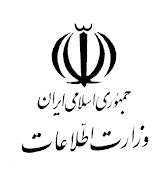Turkish authorities claim he was working for a terrorist organization
By Lucian Constantin, Web News Editor
February 7, 2009
Local media in Turkey is reporting that a prosecutor is seeking a maximum sentence of ten years in prison for a man of Kurdish ethnicity who is accused of stealing military classified documents and passing them to the Kurdistan Workers' Party (PKK).
The PKK has been considered a terrorist organization in Turkey ever since 25 years ago, when the rebel group launched a military attack against the Turkish government, asking for the independence of Kurdistan. The Kurdish Land (Kurdistan) is a territory mostly inhabited by Kurds, which covers portions of Turkey, Iraq, Iran, Syria and Armenia, with only the Iraqi region currently being recognized as an autonomous entity.
The man, identified by the authorities only as R.Ç., was arrested in November 2008 on theft charges, but upon searching his personal computers the police discovered secret documents belonging to the Turkish General Staff, which oversaw the country's army, navy and air forces, as well as classified information from Turkey's National Intelligence Organization, Milli Istihbarat Teskilati (MIT).
During the investigation, the hacker admitted collaborating with the PKK, as well as its leader, Murat Karayilan, with whom he had been communicating directly. During a raid on his apartment, the Turkish investigators found numerous CDs and DVDs labeled as local and foreign cinema productions, but which contained classified information stolen from various organizations.
The hacker obtained the documents by installing spyware on computer systems from the affected institutions, the authorities explained. When questioning him regarding how this was achieved, he pointed out that the malicious applications had been served through various adult content websites regularly visited by army members and workers.
The Kurd also told the authorities that the connection between him and the PKK leader had been established with the help of an unnamed terrorist friend living in France. He will face prosecution in the Turkish province of Diyarbakir, on accusations of “consciously and willingly aiding a terrorist organization.”
“This conflict may have started at the dawn of the computer virus era, but it seems more and more common today for combat and espionage to spill over onto the Internet,” Graham Cluley, senior technology consultant at Sophos, notes, and we have also reported several incidents involving South Korea blaming its northern communist cousins for spying on it with the help of the Internet.
9 years ago
























No comments:
Post a Comment